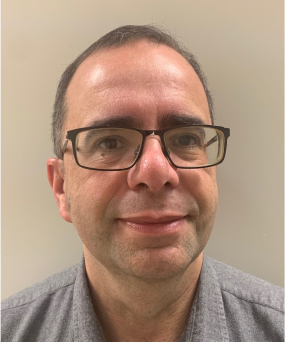- Homepage
- Programme
- Registration
- Practical Guide
- About Neuronus

University of Porto, Portugal

Over the past few years we have progressively recognized that understanding the functioning of the brain means to grasp the complexity of neuron-glia crosstalk and interactions, and that requires a much better comprehension of glia and of the mechanisms regulating their physiology in health and disease. Walking down this path has led us to unexpected findings that challenge our long-held neuron-centric view of the brain, of ageing and neurological disease. The realization that microglia can have a causative role in several neuropathologies, including Alzheimer´s disease, triggered what some authors have called a “Copernican revolution” in the neurosciences, and fueled an explosive interest in microglia and in the mechanisms controlling their physiology.
Since finishing my PhD work at the Imperial College in London, UK (1997), over the past 25 years, I have built significant expertise in studying mechanisms by which integrins (during my Postdoc at Charles ffrench Constant´s lab at the university of Cambridge, UK 1997-2002) and RhoGTPases and other actin-related proteins (since I established my own independent group first at ETHZ, in Zurich, 2002-2008; and since then at IBMC/i3S in Porto, Portugal) can regulate glia homeostasis, particularly myelinating glia, and more recently microglia. In addition to my expertise in the field of actin dynamics and actin-associated proteins, I also have a broad background in gene targeting, mouse transgenics, in transcriptomics and proteomics, cell signaling, and microscopy, including electron microscopy. I have been PI and Co-PI in several national and international projects financed by competitive funding; have considerable experience in managing large program project grants intended to be a vehicle for institutional and departmental support, have leadership experience acting as departmental coordinator and Neurobiology program coordinator, and until recently as vice-director of the i3S (https://www.i3s.up.pt/). I am part of the editorial board of Glia, and have been ad-hoc reviewer for a large number of leading journals in my area of expertise. I also have extensive experience in reviewing international grants for national and international agencies and trusts; and in advising science and technology support programs during my term as a member and vice-president of the Health and Life Sciences council of the Fundação para a Ciência e Tecnologia (FCT), the Portuguese public agency that supports science, technology and innovation.
This symposium will be dedicated to an in-depth exploration of microglia, highlighting their multifaceted roles in both the preservation of neurological health and the progression of various diseases affecting the central nervous system (CNS). As the primary resident macrophages within the CNS, microglia constitute approximately 10% of the cell population and are crucial in sustaining homeostasis. Their pivotal functions encompass not only the immediate response to injuries and inflammatory stimuli but also the vital task of eliminating toxic protein aggregates, apoptotic cells and cellular debris. The significance of microglia is widely recognized in the context of neurological disorders, where their dysfunction has been implicated in a broad spectrum of neurodegenerative and neuropsychiatric conditions including Alzheimer's and Parkinson's disease, depression and schizophrenia. Recognizing the pivotal functions of microglia in both health and pathological conditions, this symposium aims to provide a platform for delving into the latest advancements and cutting-edge research within the expansive field of microglial studies. It will focus on elucidating the intricate mechanisms governing microglial functions, exploring their contributions to CNS disorders, and discussing potential therapeutic interventions and strategies aimed at modulating microglial functions for improved neurological outcomes.
The actin cytoskeleton dynamically controls many different aspects of cell biology. Its reorganization likely underlies critical microglial function(s), including phagocytosis, process extension required for surveillance and synaptic interactions, and whole-cell migration notably towards pathological foci. The ubiquitously expressed GTPases of the Rho family, including the most well-characterized members RhoA, Rac1, and Cdc42, are critical orchestrators of cytoskeleton reorganization, making them essential players to govern microglial function.
Recent studies from our lab highlighted essential and distinct roles for RhoGTPases RhoA and Rac1 in controlling the microglial cytoskeleton and function. While RhoA balances microglial reactivity during neuroinflammation, and its ablation in adult microglia results in microglia dysfunction leading to neurodegeneration, Rac1 is required for crucial microglia-synapse crosstalk driving experience-dependent plasticity. During my talk, I will present and discuss these and other recent unpublished data related to regulation of microglia function by the actin cytoskeleton.